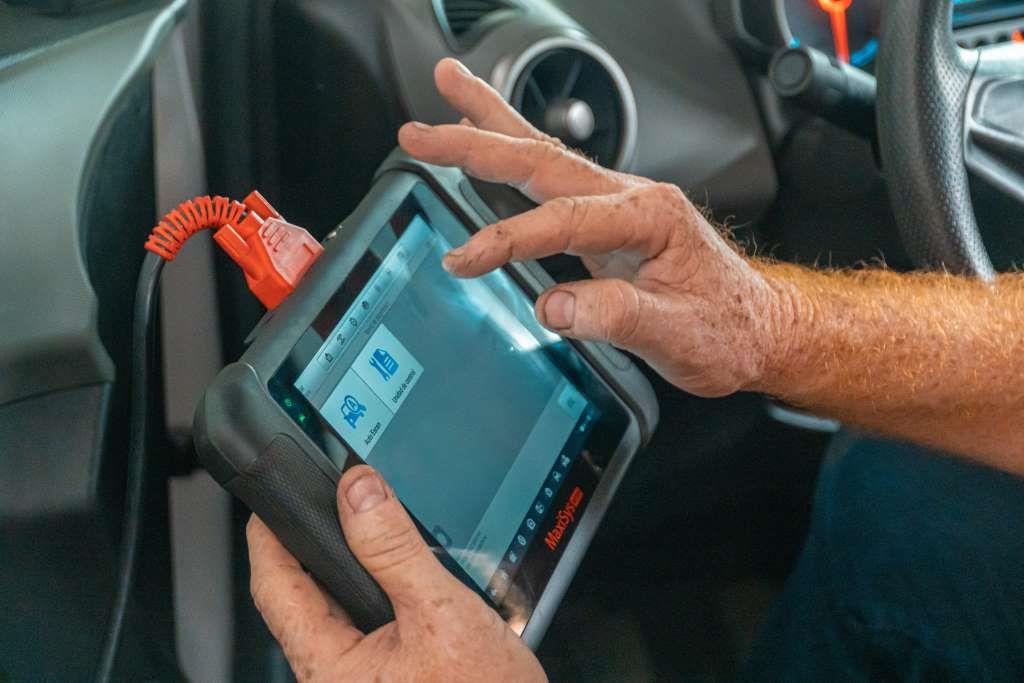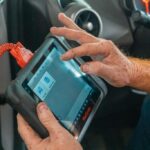Driving a car comes with a set of responsibilities, and one of the most important aspects is ensuring your vehicle is roadworthy. That’s where the MOT comes in. If you’re not quite sure what an MOT is or why you need one, you’ve come to the right place. In this comprehensive guide, we’ll cover everything you need to know about car MOT.
A car MOT, or Ministry of Transport test, is an annual inspection conducted to ensure that a vehicle meets the minimum safety and environmental standards set by the government of UK.
From understanding what an MOT is and when it’s required, to the common checks and tests conducted during the inspection, this article will leave no stone unturned. You’ll also learn how to choose a reliable MOT testing centre, what to do if your car fails the MOT, and essential tips for passing the inspection with flying colours.
Whether you’re a new car owner or a seasoned driver, this guide is designed to demystify the MOT process and equip you with the knowledge you need to ensure your car remains roadworthy. Don’t take any chances when it comes to your safety and the safety of others on the road – read on to discover the ultimate guide to car MOTs.
What is a Car MOT & Why is it important?
Driving a car comes with a set of responsibilities, and one of the most important aspects is ensuring your vehicle is roadworthy. That’s where the MOT comes in. If you’re not quite sure what an MOT is or why you need one, you’ve come to the right place. In this comprehensive guide, we’ll cover everything you need to know about Car MOT.
From understanding what an MOT is and when it’s required, to the common checks and tests conducted during the inspection, this article will leave no stone unturned. You’ll also learn how to choose a reliable MOT testing centre, what to do if your car fails the MOT, and essential tips for passing the inspection with flying colours.
Whether you’re a new car owner or a seasoned driver, this guide is designed to demystify the MOT process and equip you with the knowledge you need to ensure your car remains roadworthy. Don’t take any chances when it comes to your safety and the safety of others on the road.
Legal Requirements For Car MOT
In United Kingdom, MOT test is a legal requirement for all cars aged three years or older to undergo an MOT test. The purpose of the MOT is to ensure that vehicles on the road are safe to drive and do not pose a risk to the driver, passengers, pedestrians, or other road users. Without a valid MOT certificate, you are not allowed to drive your car on public roads.
During the MOT, trained technicians will conduct various checks and tests to assess the condition of your car’s key components, including brakes, lights, tires, steering, suspension, and emissions. They will also check the vehicle identification number (VIN), registration plate, and other essential documents to verify the vehicle’s identity and legality. Getting an MOT for your car is not just a legal requirement, but it also ensures your safety and the safety of others on the road.
When and how often should you get your car MOT?
As mentioned earlier, it is a legal requirement in most countries for cars aged three years or older to undergo an MOT test annually. The specific legal requirements for car MOT can vary from country to country, but the general principles remain the same. In UK, the MOT test is designed to ensure that your vehicle meets the minimum safety and environmental standards set by the government.
If you fail to have a valid MOT certificate, you could face legal consequences, including fines, penalty points on your driving license, and even the possibility of your car being impounded. It’s important to understand the legal requirements for car MOT in your country and make sure you comply with them to avoid any legal issues.
What happens during a car MOT?
The frequency of MOT tests for cars can vary depending on the country you reside in. In most countries, including the United Kingdom, cars are required to undergo an MOT test annually once they reach three years of age. However, there are some exceptions for specific types of vehicles, such as taxis and ambulances, which may require more frequent testing.
It’s crucial to keep track of when your car’s MOT is due. The expiration date of your current MOT certificate is printed on the certificate itself, and you can also check it online through the official government website or contact your local MOT testing centre for assistance. It’s advisable to book your MOT test well in advance, as testing centres can get busy, especially during peak times.
Common car MOT failures and how to avoid them
During a car MOT, trained technicians will conduct a series of checks and tests to ensure your vehicle meets the required standards. These checks cover various aspects of your car’s safety, emissions, and overall roadworthiness. Here’s an overview of what typically happens during a car MOT:
- Exterior checks: The MOT technician will inspect the exterior of your car, including the bodywork, lights, mirrors, registration plate, and windscreen. They will check for any damage or defects that could affect the safety or legality of the vehicle.
- Interior checks: The technician will examine the interior of your car, including the seatbelts, seats, horns, wipers, and controls. They will ensure that all essential components are in proper working condition.
- Under the hood checks: The technician will inspect the engine compartment for any leaks, damage, or signs of wear. They will also check the condition of the battery, coolant, oil, and other fluids.
- Underneath the car checks: The technician will examine the underside of your car to check the condition of the suspension, steering, exhaust system, and other components that are not easily visible.
- Wheels & tire checks: The technician will inspect the condition and tread depth of your car’s tires. They will also check the wheels for alignment and balance, as well as the condition of the spare tire.
- Brakes & suspension checks: The technician will test the effectiveness of your car’s brakes and suspension system. They will check the brake pads, discs, drums, and other components for wear and proper functioning.
- Emissions checks: The technician will conduct an emissions test to measure the pollutants emitted by your car’s exhaust system. This test ensures that your vehicle meets the required environmental standards.
These are just some of the common checks and tests conducted during a car MOT. The exact procedures may vary depending on the testing centre and the country’s regulations. It’s worth noting that the MOT test does not cover the mechanical condition of the engine, clutch, or gearbox. If you have concerns about these components, it’s advisable to get your car serviced by a qualified mechanic before the MOT test.

Finding a Reputable MOT Testing Centre
Car MOT failures are relatively common, and they can range from minor issues to more significant safety concerns. Here are some of the most common reasons why cars fail their MOT tests and how you can avoid them:
- Lights & signalling: Faulty or misaligned lights, indicators, or brake lights are a frequent cause of MOT failures. Regularly check and replace any faulty bulbs or lights to ensure they are working correctly.
- Tires & wheels: Insufficient tread depth, incorrect tire pressure, or damaged wheels can lead to MOT failures. Check your tires regularly for wear and tear, and ensure they meet the legal requirements for tread depth.
- Brakes & suspension: Worn brake pads, inefficient braking systems, or faulty suspension can result in MOT failures. Regularly maintain and service your brakes and suspension components to ensure they are in optimal condition.
- Exhaust emissions: Excessive emissions can cause MOT failures. Regularly service your car’s engine and exhaust system to minimize emissions and ensure they meet the required standards.
- Windscreen & wipers: Cracked or damaged windscreen, worn wiper blades, or faulty wiper mechanisms can lead to MOT failures. Repair or replace any damaged components to ensure clear visibility while driving.
By addressing these common issues and maintaining your car regularly, you can significantly reduce the risk of MOT failures. It’s always better to address any potential problems in advance rather than wait for the MOT test to identify them.
How much does a car MOT cost?
Choosing a reputable MOT testing centre is crucial to ensure that your car is inspected thoroughly and fairly. Here are some tips to help you find a reliable MOT testing centre:
- Research customer reviews: Look for online reviews and recommendations from other car owners. Check websites, social media platforms, or online forums to get insights into the experiences of previous customers.
- Check for accreditation: Verify that the testing centre is accredited and authorized to conduct MOT tests. Look for certifications or affiliations with recognized industry bodies or government agencies.
- Ask for recommendations: Seek recommendations from friends, family, or local car enthusiasts who have had positive experiences with MOT testing centres.
- Visit the testing centre: If possible, visit the testing centre in person to assess their facilities, equipment, and overall professionalism. It will give you an opportunity to ask questions and get a feel for their level of expertise.
- Compare prices: While price should not be the sole determining factor, it’s essential to compare prices among different MOT testing centres to ensure you are getting a fair deal. Be cautious of unusually low prices, as they may indicate subpar service.
By conducting thorough research and selecting a reputable MOT testing centre, you can have peace of mind knowing that your car will be inspected by trained professionals who adhere to the highest standards of quality and fairness.
Tips For passing your car MOT
Passing your MOT (Ministry of Transport) test is crucial for ensuring that your vehicle is safe, roadworthy, and legal to drive on the roads in the UK. Here are some tips to help you prepare for and increase your chances of passing your MOT:
- Regular Maintenance: Keep up with regular vehicle maintenance and servicing to address issues before they become significant problems.
- Check Lights & Signals: Ensure all lights and signals, including headlights, brake lights, indicators, and hazard lights, are working correctly. Replace any bulbs that have blown.
- Inspect Tires: Check your tires for proper tread depth and condition. Ensure they meet the minimum legal requirements, and the tire pressures are correct.
- Brake Maintenance: Have your brakes inspected and serviced regularly to ensure they are in good working order.
- Suspension & Steering: Ensure your vehicle’s suspension and steering components are in good condition, with no excessive wear or play.
- Check Windscreen & Wipers: Repair any cracks or damage to the windscreen, and ensure wiper blades are in good condition.
- Exhaust System: Make sure the exhaust system is in good condition and not emitting excessive smoke or noise.
- Seatbelts & Seats: Check seatbelts for wear and functionality, and ensure seats are securely mounted.
- Fuel & Emissions: Ensure your vehicle’s emissions are within acceptable levels. Keep up with regular engine maintenance and replace air and fuel filters as needed.
- Documentation & Paperwork: Keep all relevant paperwork, including your vehicle’s service history and previous MOT certificates.
- Clean the Vehicle: A clean vehicle may give the impression of proper maintenance and care, which could positively influence the MOT inspector.
- Pre-MOT Inspection: Consider having a pre-MOT inspection by a qualified mechanic before the official test. They can identify and address potential issues in advance.
- Choose a Reputable MOT Center: Select a reputable and approved MOT testing centre to ensure a fair and thorough examination.
- Be Punctual: Arrive on time for your MOT appointment, and make sure your vehicle is clean, with a clear view of the registration plate.
- Stay Informed: Familiarize yourself with the MOT test requirements and regulations, which can change periodically. Check the official government website for up-to-date information.
Conclusion: Importance of Regular Car MOT For Safety & Legal Compliance
Preparing your car for an MOT test can significantly increase your chances of passing the inspection. Here are some essential tips to help you prepare your car for an MOT:
- Perform regular maintenance: Regularly service and maintain your car to ensure all components are in optimal condition. Address any potential issues or defects in advance to avoid last-minute surprises.
- Check lights & signals: Verify that all lights, indicators, brake lights, and fog lights are working correctly. Replace any faulty bulbs or lights.
- Inspect tires: Check the tread depth, tire pressure, and overall condition of your car’s tires. Ensure they meet the legal requirements.
- Test brakes & suspension: Make sure your brakes are responsive and efficient. Check the brake pads, discs, and drums for wear. Test the suspension system for any signs of damage or inefficiency.
- Address fluid leaks: Inspect your car for any fluid leaks, such as oil, coolant, or brake fluid. Repair any leaks and top up the fluids as necessary.
- Clean windscreen & wipers: Ensure that your windscreen is clean and free from any cracks or damage. Check the wiper blades for wear and replace them if necessary.
- Address minor issues: Fix minor issues, such as loose mirrors, faulty seatbelts, or malfunctioning controls, before the MOT test.
By following these tips and adequately preparing your car for the MOT test, you can increase your chances of passing the inspection with flying colours.
You may want to check out London Motor Sports on The Local Brand®. However, any views expressed in the article are of the author. The Local Brand® in no way ascribes to opinions of the author nor do we endorse any services or products suggested.
Selena Taylor
Latest posts by Selena Taylor (see all)
- The ultimate guide to car MOT: Everything you need to know - October 29, 2023














